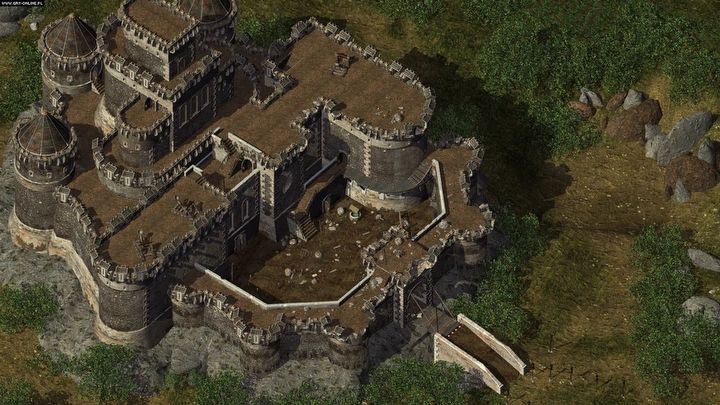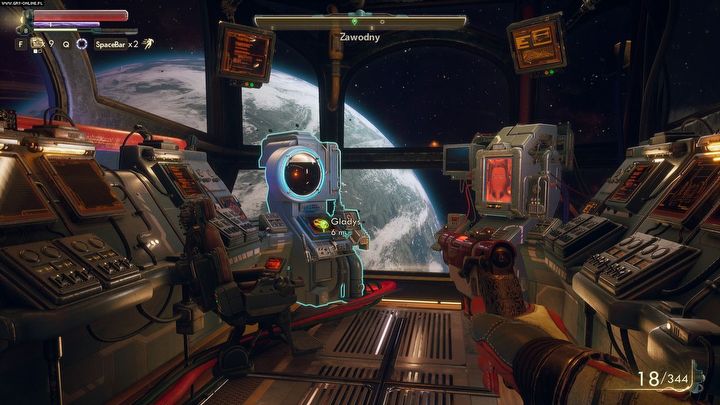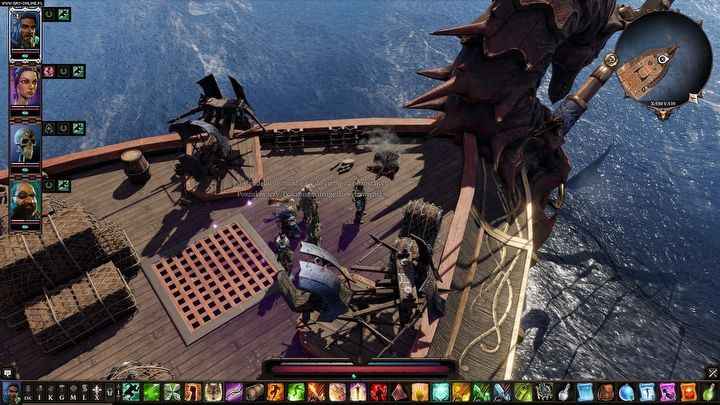RPGs Should be All-in Adventures, Not Immersive Estate Sims
No place like home, eh? They heard that saying in RPGs. Most of modern role-plays give you some form of roof over your head. The problem starts when these take a toil on gameplay.
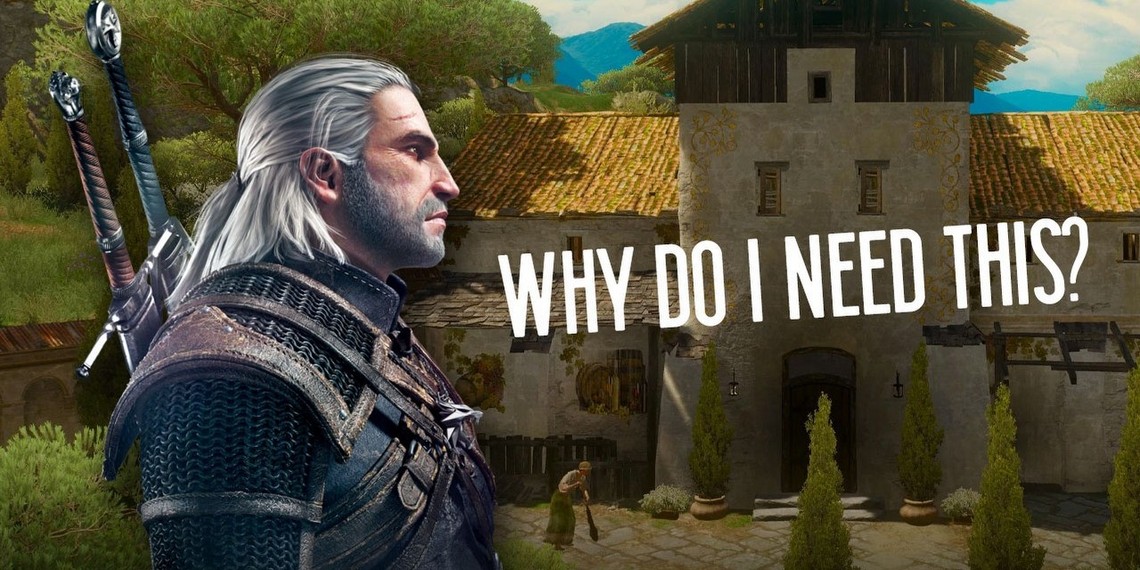
Everyone wants a home, a shelter (I'll personally also have a pimped, AWD, 2014 Dodge Charger, thanks very much). It's an instinct as old as humanity, accompanying the vast majority of our history. It gives you a sense of security and peace. So it's no surprise that this trend has spilled over into games and, in particular, RPGs. After all, Sims-like house building can also be part of role-playing. Depending on the game, we manage ships, fortresses, estates or spaceships. The problem is that many of these solutions dramatically drag down the dynamics and fun of the game. Not in all cases, but at some point in the evolution of this idea, something clearly went wrong. However, I hope it can still be undone.
This text mainly concerns single-player RPGs. I have nothing against expanding your headquarters in an MMO – after all, these are games for thousands of hours.
The foundations
You probably remember that feeling from booth table-top and computer RPGs, when you imagined that the team of our heroes grows into a gang or an army and conquers a piece of land or a kingdom all for themselves. It's a fun notion to entertain, but imagine being a developer and trying to implement it wisely. Older players will probably point to another game, but for me, my first contact with the idea of having a house in an RPG was Baldur's Gate 2. This was new to the kids of my generation. Sure, the Sims have always been circulating somewhere in the ecosystem, as did strategies like the cult Stronghold. But things like this in a fantasy, role-playing game, where we focus on adventure? "What genius came up with this?" we asked ourselves. After all, you can't spend all your RPG life sleeping in taverns and inns – you can surely afford something more after killing the red dragon?
Of course, in Final Fantasy we landed on flying ships sooner or later – and often, there were these epic moments like in my beloved part six – but this was a slightly different level of interaction, much less complex in fact.
In the classic isometric RPG from BioWare, the matter was simpler. You performed tasks related to one of the side locations and if you had the right class, they offered you a home in reward. You could profit from it financially, you could freely explore the location – which you mostly cleared of enemies yourself – and you got a few extra quests to hold the ground or defend a loved one. At that time, it was enough, although it whetted the appetite for more. Probably everyone who played and got caught up in this system thought "If it had only been developed even more!" Well, now it had – and way to much.
It's even understandable; how much you can finally play a wanderer with a piece of blanket in your backpack instead of a roof over your head. The fantasy of a character's growing power can also be realized by increasing their wealth and resources. How often did you find yourself out in a game with a heap of invisible gold you couldn't even spend on anything? Well, the developers found a solution to this problem. Which caused even more trouble.
Every creator has a different architecture
So it's understandable that when technology allowed it, prominent AAA and indie RPG authors couldn't resist the temptation and added a system of expandable fortresses, settlements and houses to their games. Ideal – on paper. In practice, however, very few of them have done it right. Dragon Age: Inquisition focused the story around the development of the titular institution and its headquarters, but this led to a situation in which the game bent under the weight of fetch quests. In Fallout 4, we could bring hope back to the wastelands with a gun, smooth talk, noble deeds and the notorious game of Bob the Builder, which can serve as diversion insofar as it can boild your blood, especially if we are overloaded (because every piece of furniture in every settlement must be moved manually to a selected location).
Pathfinder: Kingmaker offers gameplay that feels like a simplified Civilization and also allows to manage the kingdom when we're not developing the story by finding trouble in subsequent dungeons. And it was even solved in quite a convincing manner, but combined with the slow "fast travel," it made waiting for the gameplay proper feel like an infinity.
I couldn't get myself to complete Fallout 4 not because the story was mediocre (I've seen worse), but because the constant back and forth between base and settlement started to bore me. Then, games like Assassin's Creed: Valhalla, which try to refer to RPGs despite an otherwise very action-oriented gameplay, I didn't even dare to approach. I will probably finish The Witcher 3's expansion Blood and Wine someday, but for now, one of the factors preventing me from that are the matters related to managing the estate – apparently not so mandatory, but still weighing somewhere in the back of my head.
Again leading in this matter are two indie RPGs that put the giants to shame – Divinity: Original Sin 2 and Pillars of Eternity 2: Deadfire . The first one simply and humanly ignored the entire problem. Although we had our own HQs – namely a ship that we brought from someone else after the first act – but this heap of wood didn't require too much sweat from us to be managed. She was just there, anchored in the port, looking good; we could drop by in our free time, talk to the sentient hull, trade with NPCs there, or pick up some quests from our friends. An automated base, in which you can only change a few things. It was similar in the Mass Effect games and Outer Worlds. I especially liked the solutions of the latter, due to small scale and "coziness" of our ship. When a game focuses on a single city – like Cyberpunk 2077 or the first Witcher – then some form of ownable housing makes sense.
And since we're talking Obsidian, then let's talk more PoE 2: Deadfire. This excellent RPG, which sold much worse than it deserved, had almost perfectly resolved issues regarding the headquarters. As we were landing in the Deadfire Archipelago, we needed a ship. Apart from a single piece of mechanics, Obsidian hit the jackpot. The ship served as a means of transport, mobile headquarters, but also an engine of war, so to speak, whose equipment, armament and crew we had to take care of. The repairs cost money. On top of that, you had to pay for the helpers and their food, which added tension to the game's economy and kept it interesting until the end. Even finger-on-the-map travels became more interesting and a bit arcade, because we could try to avoid a clash if we chose the track correctly and had a fast ship. Only the combat proper sucked. The battles were presented as a strange text-and-drawings mini-games that I still don't understand, with boarding already being a decent, isometric, Pillars kind of combat. The fact is, Obsidian wasn't so smart at first, because in the first PoE, we were served the fortress, which was a bit cumbersome and redundant (similar bonuses to sleeping in Caed Nua we could get after a night in the inn) with a cavernous dungeon to clear.
Paradoxically, having this or that form of "home" works best when we don't have to do too much. Because, let's be honest, it's fun to own something, but the thorough maintenance of the object can be a pain in the neck. It's like the difference between driving a BMW in Need for Speed or Forza and having one in your garage. Everything is fine until you go make the first oil change and learn how many parts need replacement.
Recently, I've been through a couple of TV shows, books and fantasy comics. They reminded me an important principle: it's all about the journey. A great adventure, a journey, a brawl, an intrigue. Uncertainty and tension. It doesn't matter if we're pursuing the main objective or accidentally get into a small, side scuffle. It's about visiting new places (even if cursed with backtracking), chasing around the world and transforming the character. Managing your fortress or playing a leader of a political faction is an attempt to imitate Game of Thrones, only that it conflicts with the regular dungeon crawling and fetching minerals that our blacksmith needs to shoe horses.
It's nice to feel the warmth of a virtual fireplace for a moment after a series of misfortunes, struggles and battles. The stages in which the characters find shelter for a moment after the hardships of the journey and the struggle with the beasts are sometimes a gift of fate for both the player and the plot – especially if the scriptwriters have conceived it well. But these are only stages, an illusion of peace. A moment to relax. However, if it's a permanent residence, it completely changes the nature of the story, often slowing down the pace unnecessarily. I don't know about you, but I was a bit knocked out of rhythm and immersion in Fallout 4 and Dragon Age 3 when I had to browse through a million windows related to one or another form of expansion of my estates. Maybe it's a matter of personal expectations. Or maybe it's the execution (I'm curious about the Polish Dark Envoy and how it will do in this respect – we're going to travel the fantasy realm on a flying ship).
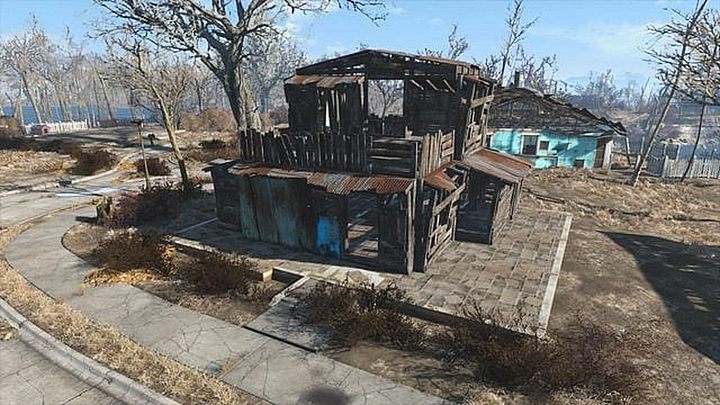
We'll slap some paint on it
And so what? Should we ban building management in RPGs? Not at all! First, I'm not a fan of cancelling something just because I personally don't like it. Second – many people appreciate this type of mechanics. Building headquarters even deepens their enthusiasm and immersion.
And it's not like games should focus on heroes who have no fixed abode. To the contrary: the classic RPG expedition is a structure assembled according to the old rules of venerable Joseph Campbell. According to him, the heroes' journey begins in either a real or a metaphorical home, where the changed protagonist returns to bring changes to the place from which he grew up. However, in games it's more a matter of story than mechanics. As far as I'm concerned, it could stay that way, but I'm not the only player in the network.
You just have to make these systems as fun as possible. I see several solutions here. This element should either be near perfect and super-intuitive, preferably with the option of accelerating and automating the processes (without harming the plot or character's profits), if we do not want to participate in it – or done as an optional path of plot development. Something like choosing between a "domestic" and "wanderer" type of character. It shouldn't be a choice between having access to a place and quests or not having it, but a choice between paths that bring quests and gameplay of a slightly different nature.
Consider the following situation: I see a game that more or less interests me (eg. any of the games mentioned above). It doesn't have to be a perfect game, really, and it rarely turns out to be. I was able to find something interesting in Gorasul: Legacy of the Dragon, so I can deal with undercooked AAAs. Anyway, I want to check a game out. In that game, in that RPG, if only for the sake of role-playing, I want to be able to access equvalent story branches, regardless of whether I choose to live the life of a landlord or a vagabond. Mods come to the rescue in some of the existing games, but – dear designers – if only the budget and time constraints allow it, think about those who do not need elements of survival or Sims: Medieval-type of gameplay, when they reach for fancy RPGs.
Also, don't be afraid to recycle the good ideas from Finals, Pillars 2 or Outer Worlds – and make the headquarters a mobile outpost. Whether it's a spaceship, some post-apocalyptic truck, an airship or a sea-ship – this gives a sense of integrity and conciseness. The nightmarish feeling along the lines of "gosh, my servants/residents are lamenting again, I have to get to the other end of the map to mend that" disappears. Our foothold is always, or almost always, at hand and it's less of a hassle. And how such a vehicle, camp or ship could be improved – I leave that to the imagination of the designers. May you not run out of it, dear designers.
Anyway, as I mentioned, having a virtual home is a fantasy of security, economic power and peace. It has to be implemented somewhow, and considering the things that can go on in the housing market, such things may soon become mainly the domain of virtual entertainment. On that bitter note, we finish this episode, wishing the developers lots of inspiration and persistence.
